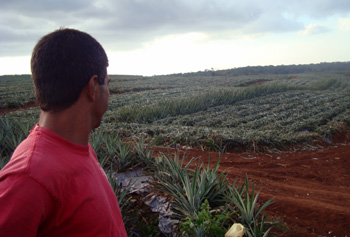Increasing agricultural productivity and achieving a high quality of life in rural areas are the main objectives of an agreement signed between IICA and one of the main financial institutions in the Americas.

Caracas, Venezuela, March 26, 2012 (IICA). The Inter-American Institute for Cooperation on Agriculture (IICA) and the Development Bank of Latin America (CAF) signed an agreement to jointly support projects that contribute to the improvement of agriculture and rural development in Latin America and the Caribbean.
Based on the agreement, which was signed on March 22 by Victor M. Villalobos, Director General of IICA, and Luis Enrique Garcia Rodriguez, Executive Chairman of CAF, public and private investments aimed at promoting innovation among agricultural producers, and impacting in a significant way the quality of life in rural areas in terms of equity, inclusion and poverty reduction, will be increased.
Cooperation between both institutions will take the form of project preparation, direct consultancy via technical missions or visits by experts, exchange of information and training, among other actions.
IICA, which is celebrating its 70th anniversary, was established as the specialized agricultural agency within the inter-American system and provides technical assistance to 34 countries within the hemisphere. CAF, on the other hand, was founded in 1968 and is known as the Development Bank of Latin America. It has 18 shareholder nations, including Spain and Portugal.
To date, the sectors that have received the most attention from the Bank, accounting for 85% of loans, are energy, gas, water, transportation, storage and communication, commercial banking, as well as education and health. Argentina, Brazil, Colombia, Ecuador, Peru y Venezuela are the countries that have requested the highest funding.
For more information, contact:
nelson.espinoza@iica.int











